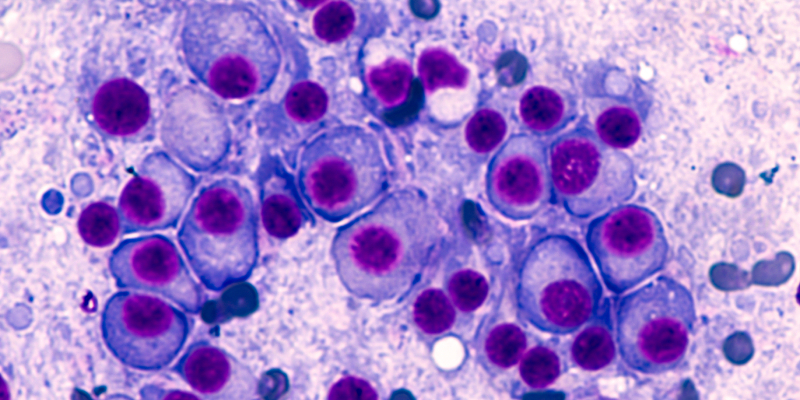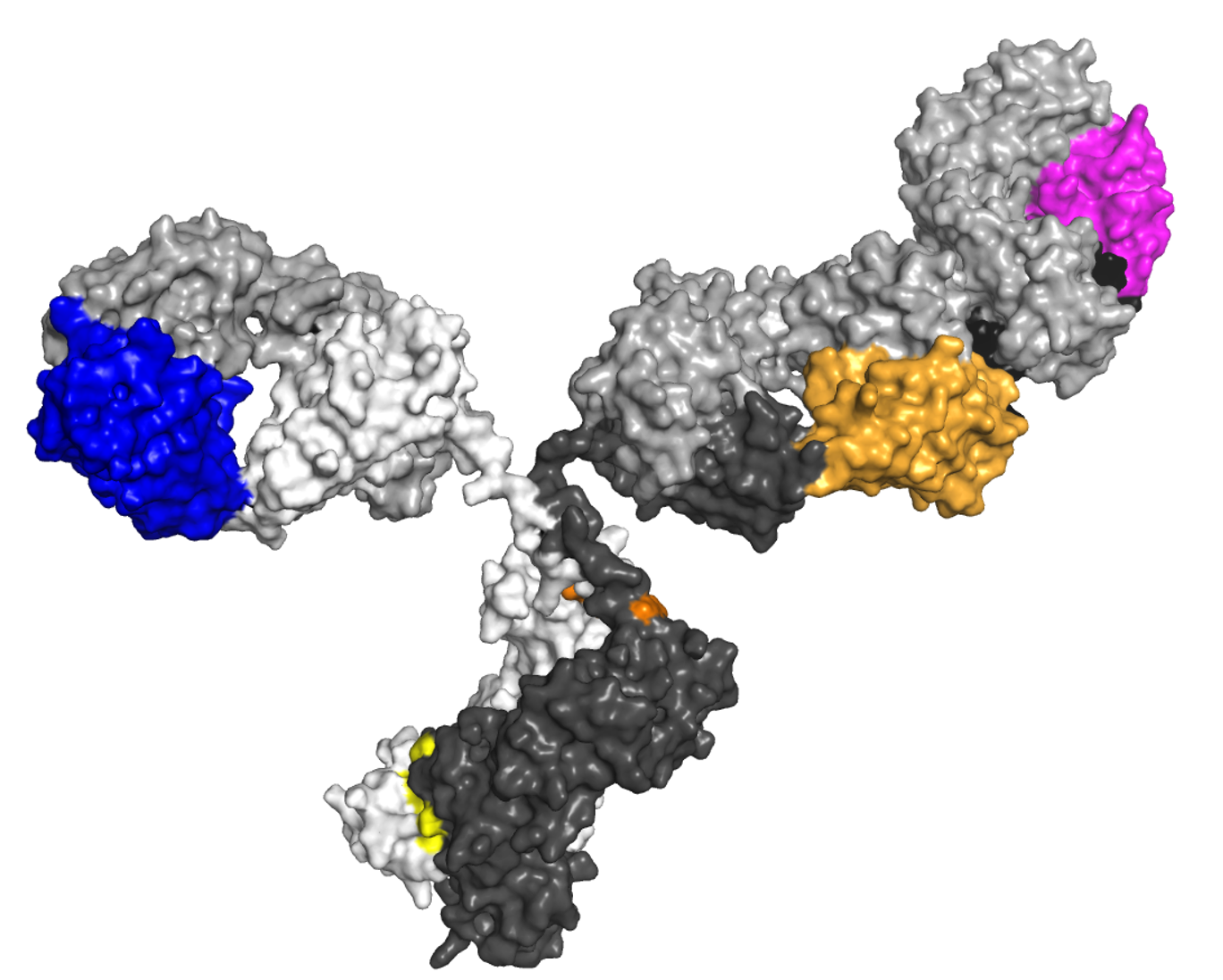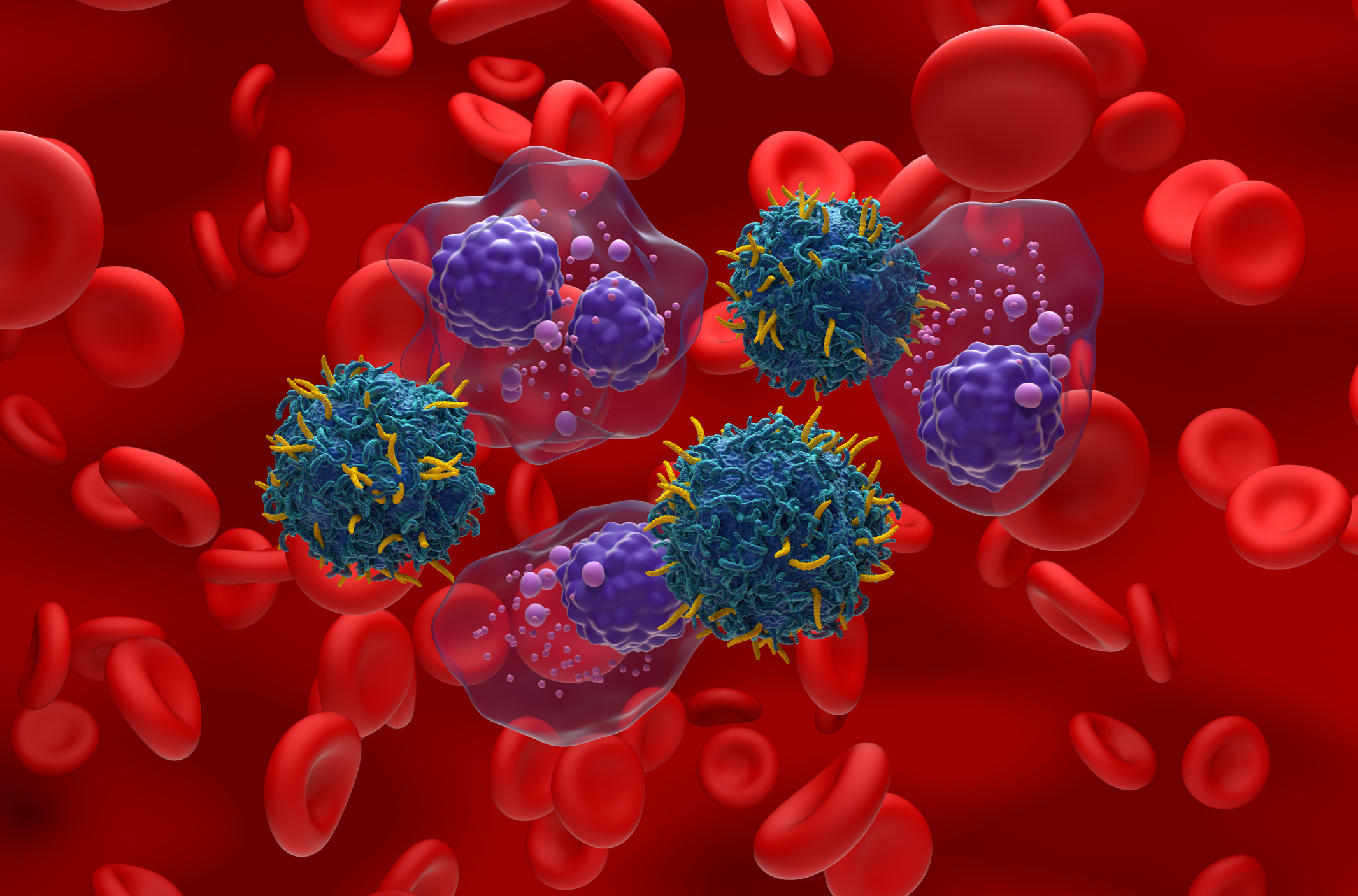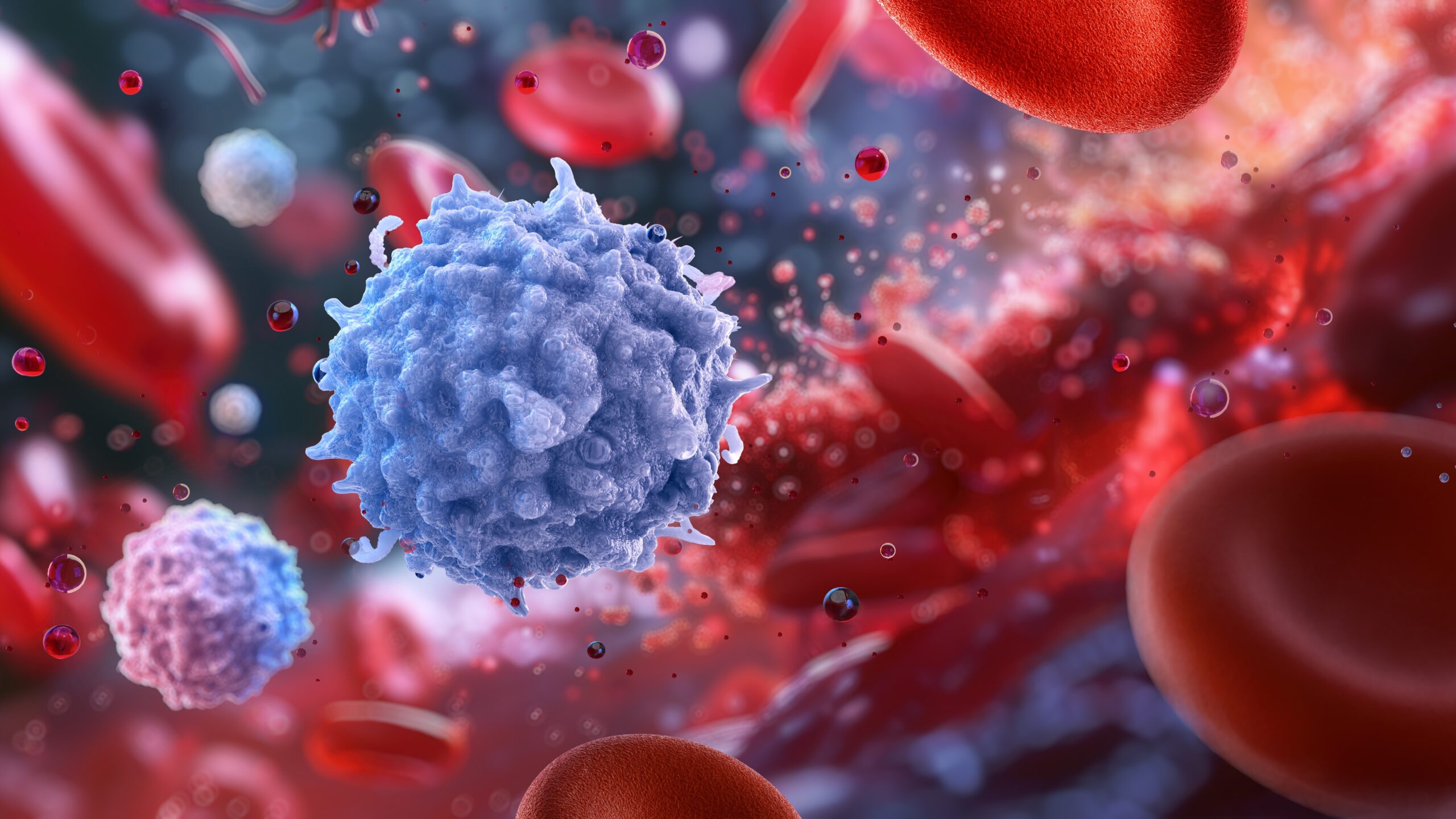
B-cell maturation agent (BCMA)-directed chimeric antigen receptor (CAR) T-cell therapy led to an overall response rate (ORR) of 92% in patients with relapsed/refractory multiple myeloma (MM) who previously received a transplant.
Lindsay Hammons, MD, of the Medical College of Wisconsin, and colleagues conducted the study because “limited data exist on the safety and efficacy of CAR T-cells in the post-[allogeneic hematopoietic stem cell transplant] setting where apheresed T-cell products are donor-derived.”
Dr. Hammons and colleagues presented results from the single-center retrospective study at the 2022 American Society of Hematology Annual Meeting.
They analyzed the safety and efficacy of the treatment in 12 patients with relapsed/refractory MM who had a prior history of allogeneic hematopoietic stem cell transplantation (HSCT) and autologous HSCT. The median patient age was 64 years and 67% of the patients were male.
The median time from MM diagnosis to allogeneic HSCT was 534 days, with a median of 2.5 lines of prior therapy before transplant. All patients had full donor T-cell chimerism after allogeneic HSCT. While 58% of patients had a history of graft-versus-host disease (GVHD), none had active GVHD when they received CAR-T therapy.
Of the 12 patients, five received idecabtagene vicleucel and seven received an investigational product, with a median of seven lines of therapy prior to CAR-T. The ORR was 92% at day 28 after treatment, with 75% of patients achieving a complete response and 17% achieving a very good partial response. At the most recent follow up, two patients (17%) had relapsed, one at 155 days after infusion and one at 975 days after infusion. The median duration of response, progression-free survival, and overall survival were not reached.
Nearly all (92%) patients developed cytokine release syndrome after receiving CAR-T, while 17% developed immune effector cell-associated neurotoxicity syndrome. Patients did not experience exacerbation of acute or chronic GVHD after CAR-T infusion. The researchers reported no cases of delayed movement and neurocognitive disorders or other grade 3 or higher adverse events.
“These data suggest that BCMA-directed CAR-T after prior [allogeneic HSCT] does not lead to GVHD and may provide deep and durable disease control in heavily treated MM,” the researchers concluded. “Further studies looking at the functional and phenotypic attributes of these donor-derived CAR-T products are needed to better understand and harness their potential benefit.”
Reference
Hammons L, Haider S, Pasquini MC, et al. Chimeric antigen receptor-t (CAR-T) cell therapy targeting BCMA in patients with prior allogeneic transplantation (allo-HCT) in relapsed and/or refractory multiple myeloma (RRMM). Abstract #3210. Presented at the 64th ASH Annual Meeting and Exposition; December 10-13, 2022; New Orleans, Louisiana.






 © 2025 Mashup Media, LLC, a Formedics Property. All Rights Reserved.
© 2025 Mashup Media, LLC, a Formedics Property. All Rights Reserved.